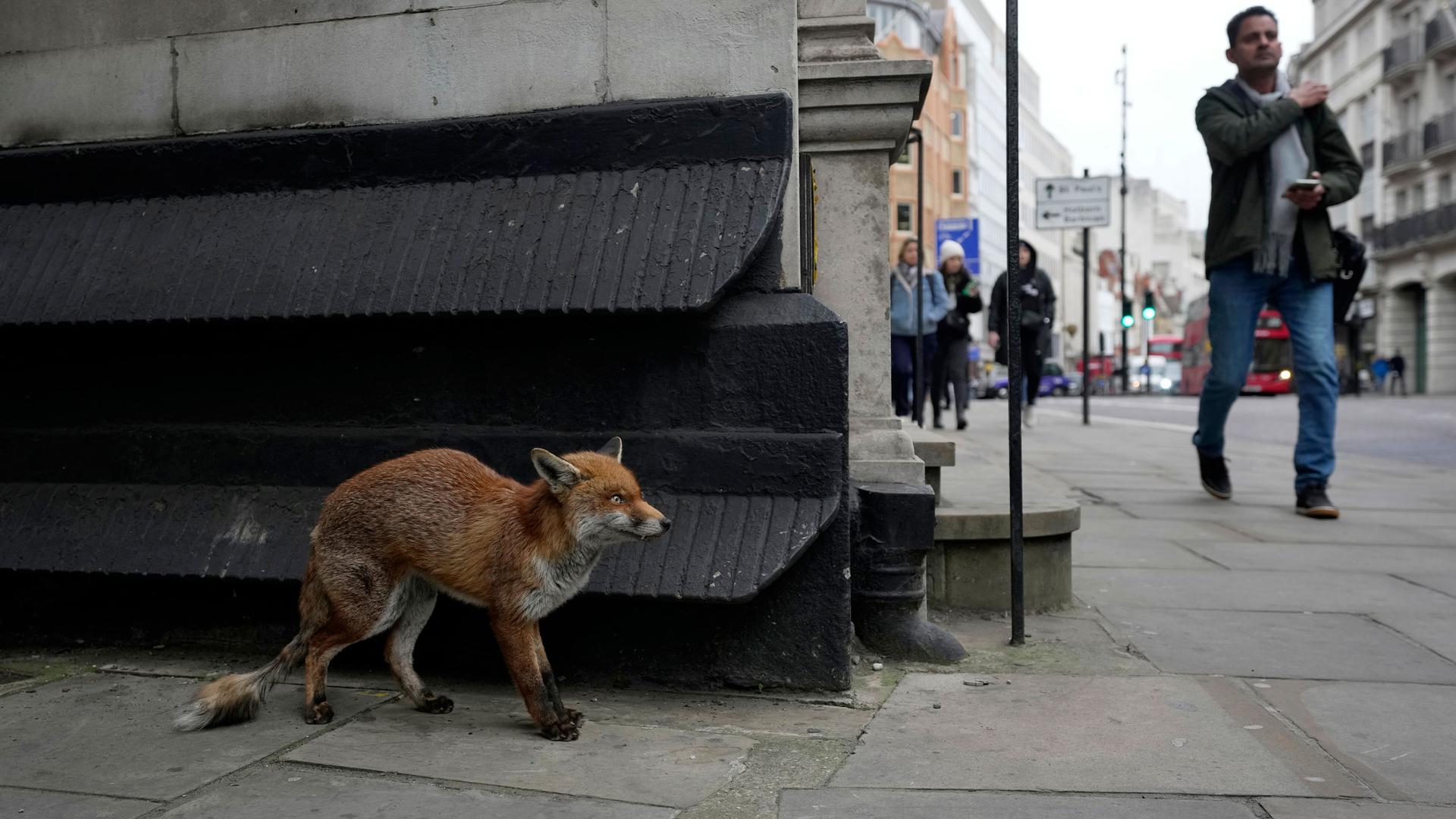From Parisian pigeons to New York City rats, every city has its pesky wildlife creatures.
In London, it’s the city’s 10,000 urban foxes that have become both a malevolent menace and misunderstood mammal — it just depends on who you ask.
“One thing you can certainly say about the fox is it’s an animal that’s been persecuted its whole existence,” said professional wildlife photographer Matt Maran, co-author of the book “Fox: Neighbor. Villain. Icon.”

Maran said his fascination with London’s foxes stems at least in part because of the creature’s ability to adapt to its surroundings, even as other animals were phased out of the city.
“We used to have bears, wolves and lynx roaming these lands,” Maran said. “But somehow the fox has managed to survive all of that persecution.”

For many Londoners, there’s less of a fascination and more of an irritation, especially as urban foxes become bolder, increasingly making their way into gardens and raiding trash bins.
“I think most people consider them perhaps a nuisance,” London resident Sara Johnson said. She regularly sees foxes rummaging around the garden of her home located just next to Hyde Park.
“[London] is not a natural habitat for foxes,” according to Eivand Johnson, her husband. “There’s so much food in the city that’s thrown out that foxes can live off of these provisions that are left from restaurants and even private homes.”
To which Maran said — can we blame them?
“Why would you blame an animal for going to get easy pickings?” he said, “They’re really great survivors.”
These are what you call human problems, Maran said, not fox problems.

Maran points to other places where humans have found solutions to living with disruptive wildlife. For example, specially designed bear resistant trash cans used inside national parks in the US.Why doesn’t London have fox-proof bins, he said.

After all, foxes have been a staple of the city’s landscape for decades.
“The whole thing with foxes is they’ve been prevalent in London since the 1930s,” said Trevor Williams, founder of the Fox Project, a charity that operates a wildlife ambulance service that treats more than a thousand foxes a year.
But when Williams launched the organization in 1991, it was because he felt there were too many misconceptions going around about foxes.
“I’ve always felt there was a need for an organization, an information bureau really on foxes, and that’s what I wanted to establish,” he said.
There are some points Williams wants to make straight: Foxes are generally not a threat to humans or domestic animals such as cats or dogs. They haven’t carried rabies in the UK since 1902. The fox population in London isn’t growing — it’s actually gone down since its peak in the mid-’90s.
And those wailing screeching sounds that they sometimes make at night? They can be annoying, but they’re generally just mating calls or a simple fox conversation.
“It’s those kind of misconceptions which blow up and they get worse by urban myth,” Williams said.
“Everybody gets more and more frightened because we love being frightened in England.”
